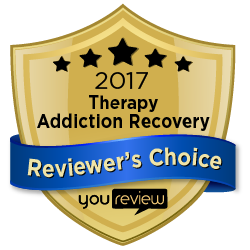The mental health condition Antisocial personality disorder (ASPD) affects between 1% and 4% of U.S. residents. ASPD impacts the way the individual thinks and behaves. Someone with ASPD may not comprehend how to communicate and behave reasonably with people. They frequently act disrespectfully, manipulate people, or act recklessly. The individual may also often demonstrate a lack of remorse and an unwillingness to admit responsibility for their hurtful behavior. With proper treatment, people with ASPD can sometimes improve control of their thinking and behavior.
What is Antisocial Personality Disorder?
Antisocial personality disorder (ASPD) is a disruptive mental health condition in which people afflicted with the problem do not adhere to social norms or societal rules of normal conduct. People who have ASPD demonstrate a lack of respect for others. They can cause psychological, emotional, or physical harm to people around them. They refuse to accept any responsibility for their bad behavior. People with ASPD also tend to ignore the risk of serious consequences.
The term “sociopath” is sometimes used in describing ASPD patients. There are overlapping sociopathy and antisocial personality disorder traits. For example, there is a lack of a basic level of conscience common to both disorders.
Antisocial Personality Disorder Causes
There is no antisocial personality disorder test, and there has been no clear cause of ASPD identified to date. It is believed that the disorder may be due to a combination of biological, genetic, and environmental factors that increase the risk of developing the condition. For example, people with ASPD may have irregular serotonin levels, which can affect mood. They may appear to be at their worst from ages 24 to 44, and then seem to improve after age 45. If the behavior persists beyond age 18 it is re-diagnosed as ASPD.
Symptoms and Signs of Antisocial Personality Disorder
People afflicted with antisocial personality disorder may exhibit numerous psychological and emotional symptoms. Some may impact themselves and/or others around them in severely negative, even potentially physically harmful, ways. Antisocial personality disorder symptoms can include:
- Disregarding the rights of other people
- Manipulating or deceiving others
- Showing no remorse for hurting others
- Acting impulsively
- Behaving irresponsibly
- Acting physically aggressively
- Lacking concern about consequences
- Acting recklessly
- Breaking the law
- Blaming others for their problems
- Extreme mood shifts
- Destroying property
- Behaving violently
- Having suicidal thoughts
- Harming himself/herself
Antisocial Personality Disorder Treatment and Management
People with ASPD may respond well to treatment and close long-term care, possibly involving individual, family, or other therapy. The success of ASPD treatment will depend on the specifics of the individual’s circumstances, how severe the symptoms are, and the extent of his or her willing participation in the treatment program.
Medications
ASPD treatment specialists may prescribe various types of medications to help manage symptoms and associated problems. For example, medications may be used to manage symptoms of anxiety, depression, mood swings, aggression, and other issues that may exist along with ASPD. The kinds of medications typically used include:
- Antidepressants: Medications such as fluoxetine and sertraline are often used to regulate the levels of serotonin in the brain.
- Antipsychotics: Treatment with quetiapine, risperidone, or other drugs in this class can help with controlling aggressive or violent behavior.
- Mood stabilizers: Carbamazepine, lithium, or other medications are sometimes used to help in managing extreme mood or behavioral shifts.
Psychotherapy
Psychotherapy, also called talk therapy, is sometimes used to treat ASPD. Treatment may include cognitive behavioral therapy (CBT), which provides counseling to help people focus on how their behavior impacts others. Along with CBT, various forms of psychotherapy used may include treatment for anger management, alcohol or substance abuse, and therapies for co-occurring mental health disorders, among others.
Co-Occurring Disorders: Dual-diagnosis may include depression, attention-deficit/hyperactivity disorder (ADHD), or others.
Utah Treatment for Antisocial Personality Disorder
People with the mental health disorder of ASPD are likely to be very reluctant to accept professional help to overcome the condition. Look for medical and mental health professionals with experience in treating antisocial personality disorder. We know how to help people who are struggling to recognize opportunities for progress, build trust, and achieve meaningful long-term improvement.



